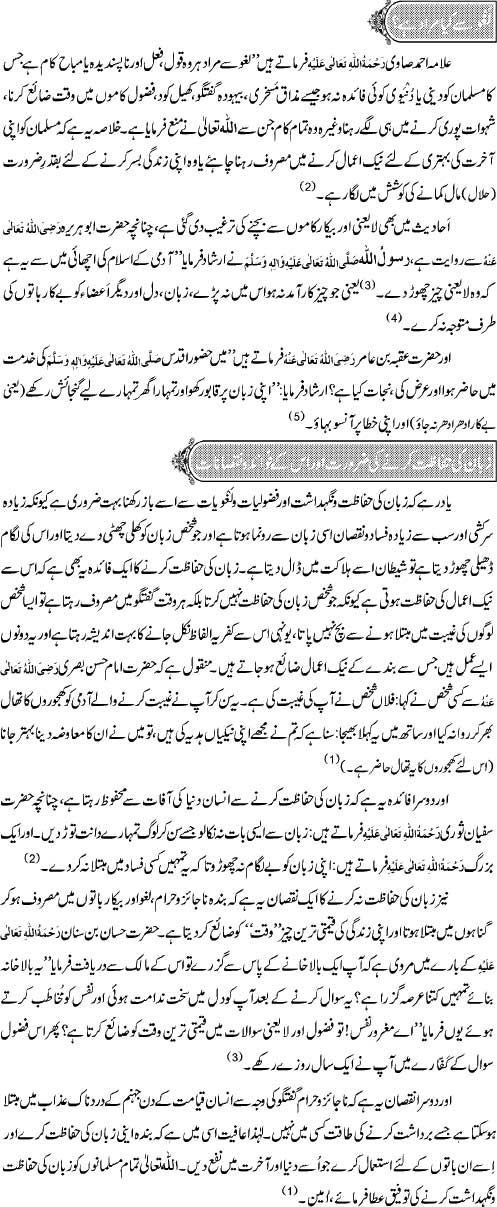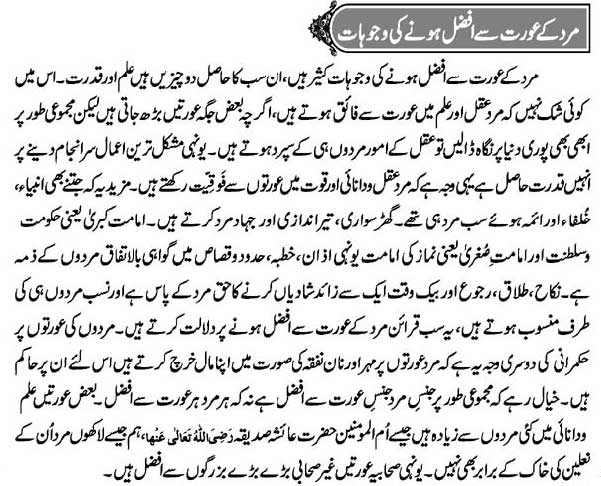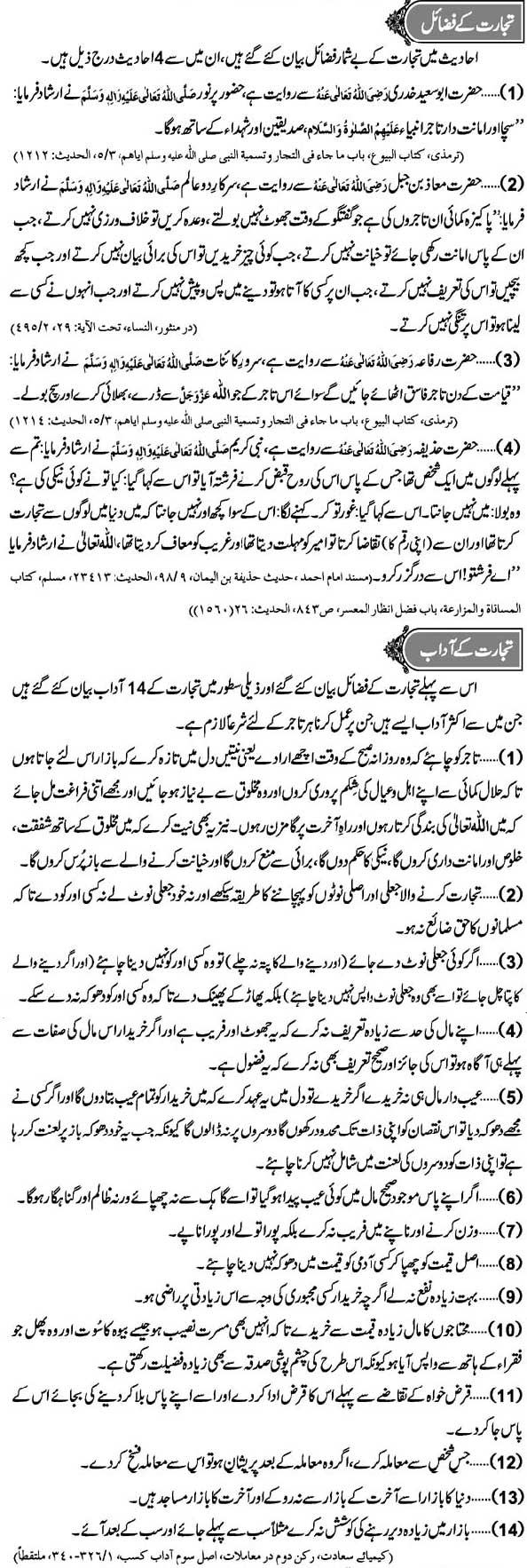
The People Of Paradise Will Laugh At The Fire
After Allah (swt) admits the people of Paradise to Paradise, they will call out to their opponents among the kuffaar in Hell, rebuking and scolding them:
“And the dwellers of Paradise will call out to the dwellers of the Fire [saying]: “We have indeed found true what our Rabb promised us; have you also found true, what your Rabb promised [warnings, etc]? They will say “Yes”. Then a crier will proclaim between them: “The Curse of Allah is on the Dhaalimoon [wrongdoers]” [7:44]
The kuffaar used to dispute with the believers in this world, making fun of them and insulting them, but on that Day the believers will be victorious: they will be in a state of everlasting joy, looking at the wrongdoers and making fun of them:
“Verily, al-Abraar will be in delight, on thrones, looking [at all things]. You will recognize in their faces the brightness of delight. They will be given to drink pure sealed wine, the last thereof will be the smell of musk, and for this let [all] those strive who want to strive. It [that wine] will be mixed with Tasneem, a spring whereof drink those nearest to Allah. Verily [during the earthly life] those who committed crimes used to laugh at those who believed, and whenever they passed by them, used to wink to one another [in mockery]; and when they returned to their own people, they would return jesting; and when they saw them, they say, “Verily! These have indeed gone astray!” But the [disbelievers] had not been sent as watchers over them [the believers]. But this Day those who believe will laugh at the disbelievers on [high] thrones, looking [at all things]. Are not the disbelievers paid [fully] for what they used to do?” [83:22-36]
By Allah, the kuffaar will finally get the punishment that they deserve, a punishment that fits their crimes. The believer who is now in the luxury of Paradise will remember that colleague or friend who used to encourage him to follow kufr in this world and called him to embrace those misguided principles that would have placed him in the ranks of the kuffaar and enemies of Allah (swt). He will tell his companions about that former colleague, and tell them to look at him and his punishment. When he sees how he is being punished, he will realise the extent of the blessing that Allah (swt) has bestowed upon him, and how Allah (swt) has saved him from a similar fate. Then he will address his former companion and rebuke him:
“Then they will turn to one another, mutually questioning. A speaker of them will say, “Verily I had a companion [in the world] who used to say, “Are you among those who believe [in resurrection after death], [that] when we die and become dust and bones, shall we indeed [be raised up] to receive reward or punishment [according to our deeds]?” The Man said, “Will you look down?” So he looked down and saw him in the midst of the Fire. He said, “By Allah! You have nearly ruined me. Had it not been for the Grace of my Rabb, I would certainly have been among those brought forth [to Hell].” [Allah (swt) informs about the true believer that he said], “Are we not then to die [any more]? Except our first death and we shall not be punished? [after we have entered Paradise] Truly this is the supreme success! For the like of this let the workers work.” [37:50-61]
- April, 8
- 2306
- Paradise-Hell
- More
Azan Kay Fazail

Al-Isra’: The Prophet’s Unique Journey
GLORIFIED (and Exalted) is He (Allah) Who took His slave (Muhammad, peace be upon him) for a journey by night from Al-Masjid Al-Haram [at Makkah] to Masjid Al-Aqsa [in Jerusalem], the neighborhood whereof We have blessed, in order that We might show him (Muhammad, peace be upon him) of Our Ayat (proofs, evidence, lessons, signs, etc). Verily, He is the All-Hearer, the All-Seer. (17:1)
Surah Al-Israa’ begins with glorifying Allah, the most fitting action to confirm the bond between Allah and His servants in the atmosphere of compassion and friendliness imparted by the mention of the night journey. The Surah emphasizes the position of man as Allah’s servant. The emphasis here is needed in the context of the Prophet’s ascension to heaven where no human being had gone before.
It is important in this context that the status of man’s servitude to Allah should always be remembered.
There must be no confusion of status similar to that which happened in the case of Jesus on account of his birth, his being raised to heaven at the end of his life on earth, and the powers that were given to him during life. All these caused some people to confuse his status and to claim that he had a divine nature. In its simplicity and purity, Islam insists that no similarity could ever exist between Allah and any creature.
The Arabic text of this opening verse uses the verb Asra, which denotes “traveling during the night.” It is sufficient then to use this verb to denote the time of the action. Yet the verse adds the word laylan or “by night” to give an added sense of the still night and the ease of travel.
The journey from the Grand Mosque to Al-Aqsa Mosque was one chosen by Allah, the Compassionate Who knows everything. It provided a link between all monotheistic faiths from the time of Abraham and Ishmael to the time of the last Prophet, Muhammad (peace be upon them all). It also established a link between the holy places in all these religions. It seems that this unusual journey served as an announcement that the Last Messenger was the heir to the heritage of all former Messengers. His message staked a claim to all these holy places. Thus it becomes a journey that goes beyond the scope of time and place.
The opening verse describes Al-Aqsa Mosque as one with blessed environs. This description shows the blessings surrounding the mosque and flowing in abundance. This impression could not have been given with a direct description such as “the mosque which We have blessed.”
This is another example of the refined use of language characteristic of the Qur’an.
The Prophet’s night journey was a telling sign, and it was accompanied by others, as the opening verse says in stating its purpose : “…. in order that We might show him of Our Ayat…”. Covering the distance between the Grand Mosque in Makkah and Al-Aqsa Mosque in Jerusalem in a very short period that did not allow the Prophet’s bed to become cold is a sign of Allah’s power, whatever the means used to accomplish it. It opens our minds to new horizons in the universe and reveals latent potentials within mankind.
It shows that those human beings chosen by Allah to be the bearers of His message have the latent ability to receive whatever greater powers He wishes to give them. It is Allah Who has honored man, giving him a favored position among His creation, and endowed him with such potentials.
“Verily! He is the All-Hearer, the All-Seer.” He indeed hears and sees all that is beyond the reach of our hearing and seeing faculties.
It is especially impressive that the opening verse of this Surah starts with glorifying Allah: “Glorified (and Exalted) is He (Allah) Who took His slave for a journey by night.”
After defining the purpose of this journey, the Surah finishes with highlighting two of Allah’s attributes, perfect hearing and seeing that encompass all things.
This quick movement across purposes reflects the finest points of the expression used. The glorification is addressed to Allah Himself, and the statement about the purpose of the night journey comes from Him, while the description of Allah’s powers is made in the form of an indisputable statement. All these forms are combined in one verse so as to give their different imports.
Mard Kay Aurat Say Afzal Honay Ki Wojohat
مرد کے عورت سے افضل ہونے کی وجوہات

Miscellaneous Hadith
Narrated by ‘ Ibn Umar : Allah’s Apostle said, “The worst lie is that a person claims to have seen a dream which he has not seen.”
Narrated by Ibn ‘ Umar : I saw in a dream a piece of silken cloth in my hand, and in whatever direction in Paradise I waved it, it flew, carrying me there. I narrated this (dream) to (my sister) Hafsa and she told it to the
Prophet who said, (to Hafsa), “Indeed, your brother is a righteous man,” or, “Indeed, ‘Abdullah is a righteous man.”
Narrated Abu Huraira: The Prophet said, “I have been given the keys of eloquent speech and given victory with awe (cast into the hearts of the enemy), and while I was sleeping last night, the keys of the treasures of the
earth were brought to me till they were put in my hand.” Abu Huraira added: Allah’s Apostle left (this world) and now you people are carrying those treasures from place to place.
It is learnd tat one day when Prophet(pbuh) was to deliver the speech on a Friday. He(pbuh) climbed the stairs of the Mimber-e-mubarak and said AMEEEN thrice climbing each step. The follower’s(r.a) inquired about that and Prophet(pbuh) replied that when He(pbuh) was climbing the stairs of the Mimber-e-mubarak Jibrael-e-Ameen came and made three supplications to the Almighty ALLAH on which Prophet(pbuh) said Ameen.
It is the matter of concern that the supplication was made by best of the angel’s and Prophet(pbuh) said Ameeen on that….. The following are the three supplications made by Jibrael-e-Ameen on which Prophet(pbuh) said Ameeen..
1. Curse of ALLAH be on the person who does not fast during the month of Ramadan even if he’s well (without any diseases or physical problems).
2. Curse of ALLAH be on the person who do not obey and listen to their parents.
3. Curse of ALLAH be on the person who after listening and saying the name of the Holy Prophet(pbuh) do not recite DAROOD SHAREEF.
May ALLAH paak guide us the straight path and bless us all with the wealth of reciting DAROOD SHAREEF all the time.. Ameeeeen YA RABBAL ALAMIN..
Tijarat Kay Fazail Aur Adaab
تجارت کے فضائل اور آداب

Everyone Is Responsible
Ibn ‘Umar(RA) narrated that the Prophet(SAWS) said,”Everyone of you is a guardian and is responsible for his subjects. The ruler who has authority over people, is a guardian and is responsible for them. A man is guardian of his family and is responsible for them. A woman is a guardian for her husband’s house and children, and is responsible for them. A slave is a guardian of his master’s property and is responsible for it. So, all of you are guardians and are responsible for your charges.” (Sahih Al-Bukhari, Sahih Muslim).
Resenting seeking leadership
Abdur-Rahman bin Samurah(RA) narrated that the Messenger of Allah(SAWS) said:”O Abdur-Rahman! Do not seek to be a ruler, because if you are given authority on asking for it, then it will be a burden on you; but if you are given it without asking for it, then you will be helped in it (by Allah).” (Sahih Al-Bukhari, Sahih Muslim).
Abu Dhar(RA) narrated: I said: “O Messenger of Allah, will you not appoint me for a public office?” He stroked my shoulder with his hand and said:”O Abu Dhar, you are weak and authority is a trust, and on the Day of Resurrection it is a cause of humiliation and sorrow except for him who fulfills its obligations and (properly) discharges the duties thereon.” (Sahih Muslim).
Ruler’s reward
Abu Hurairah(RA) narrated that the Prophet (SAWS) said: “A ruler (of the Muslims) is a shield for them. They fight behind him, and they are protected by him. If he enjoins fear of Allah, the Exalted, and Glorious, and dispenses justice, there will be a reward for him; and if he enjoins otherwise, he will receive its consequences.” (Sahih Muslim).
Reward for discharge of responsibility justly
Abdullah bin ‘Umar(RA) narrated the Messenger of Allah(SAWS) said: ” Behold! The dispensers of justice will be seated on the pulpits of light in proximity of Allah, on the right side of the Merciful, and Exalted. And both sides of Allah are right. Those who do justice in their rules, in matters relating to their families and in all that they undertake to do.” (Sahih Muslim).
Religion is sincerity and goodwill
Tamim Ad-Dari(RA) narrated that the Prophet(SAWS) said: “Religion is sincerity and goodwill.” We asked: “For whom?” He said: “To Allah, His Book, His Messenger, the leaders of Muslims and the Muslims in general.” (Sahih Muslim).
Jarir(RA) reported: The Messenger of Allah(SAWS) was given pledge by me to perform the prayers, to pay Zakat, and to offer sincere advice to every Muslim.
(Sahih Al-Bukhari, Sahih Muslim).
Jahanumion Ki Faryad

Punishment Of Illegal Sexual Intercourse
Illegal sexual intercourse is called ‘Zina’ in Arabic. The word Zina is usually used for illegal sexual intercourse but there are also other types of Zina. In brief they are: touching Na-Mehram, talking unnecessarily to Na-Mehram, glancing Na-Mehram, or any unnecessary connection with any Na-Mehram man or woman. Indeed it is a shameful act. Sexual intercourse is allowed between (husband & wife) only.
Punishment For Married Adulterer
If a married person commits Zina then he/she should be stoned to death. There is no forgiveness for them in this world. They should bear this punishment and should beg Allah for His mercy and forgiveness. The punishment for married people is stricter because they are already married and can fulfill their sexual desires with their spouse.
The Holy Quran
The woman and the man guilty of illegal sexual intercourse, flog each of them with a hundred stripes. Let not pity withhold you in their case, in a punishment prescribed by Allah, if you believe in Allah and the Last Day. And let a party of the believers witness their punishment. (This punishment is for unmarried persons guilty of the above crime but if married persons commit it, the punishment is to stone them to death, according to Allah’s Law). [Chapter #24 Surah An-Noor, Verse #2]
Hadith
Narrated Jabir: A man from the tribe of Bani Aslam came to Prophet Mohammad (SalAllaho Alaihi Wasallam) while he was in the mosque and said, “I have committed illegal sexual intercourse.” The Prophet turned his face to the other side. The man turned towards the side towards which the Prophet had turned his face, and gave four witnesses against himself. On that the Prophet called him and said, “Are you insane?” (He added), “Are you married?” The man said, ‘Yes.” On that the Prophet ordered him to be stoned to the death in the Musalla (a praying place). When the stones hit him with their sharp edges and he fled, but he was caught at Al-Harra and then killed. [Sahi Bukhari (Book #63, Hadith #195)]
Hadith
Narrated Zaid bin Khalid and Abu Huraira: The Prophet (SalAllaho Alaihi Wasallam) said, “O Unais! Go to the wife of this (man) and if she confesses (that she has committed illegal sexual intercourse), then stone her to death.” [Sahi Bukhari (Book #38, Hadith #508)]
Punishment For Unmarried Adulterer
If an unmarried person commits Zina then he/she should be scourged 100 (one hundred) lashes and sent into exile for 1 (one) year. The punishment for unmarried people is lighter as they do not have a spouse to whom they can go to fulfill their sexual desires, that’s why they are given a lighter punishment.
Hadith
Narrated Zaid bin Khalid: Allah’s Apostle (SalAllaho Alaihi Wasallam) ordered that an unmarried man who committed illegal sexual intercourse be scourged one hundred lashes and sent into exile for one year. [Sahi Bukhari (Book #48, Hadith #817)]
Punishment In Torah (Pentateuch)
Torah (Pentateuch) revealed over Prophet Moses (Alaihissalaam), has also the same punishment for Zina as the Quran has told us.

